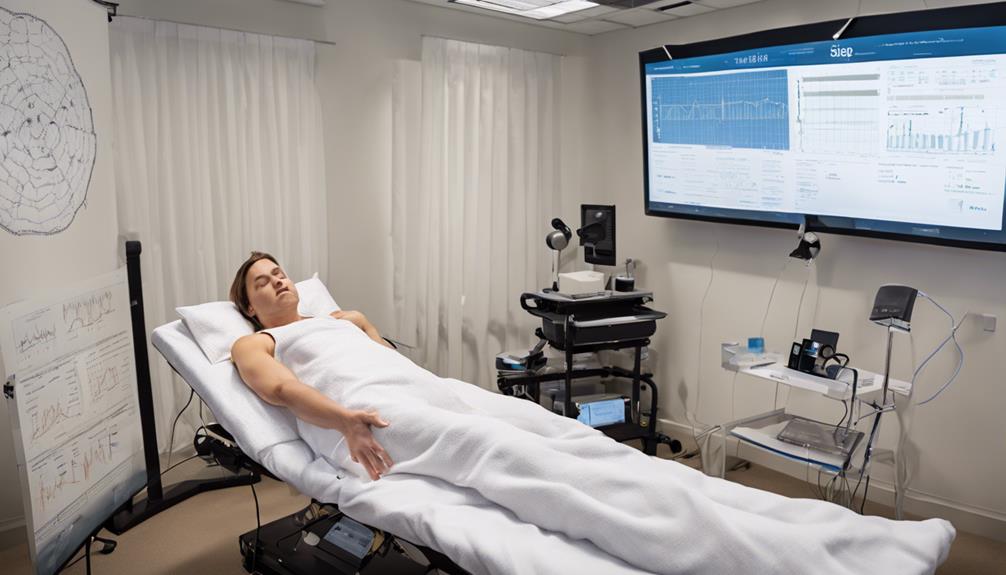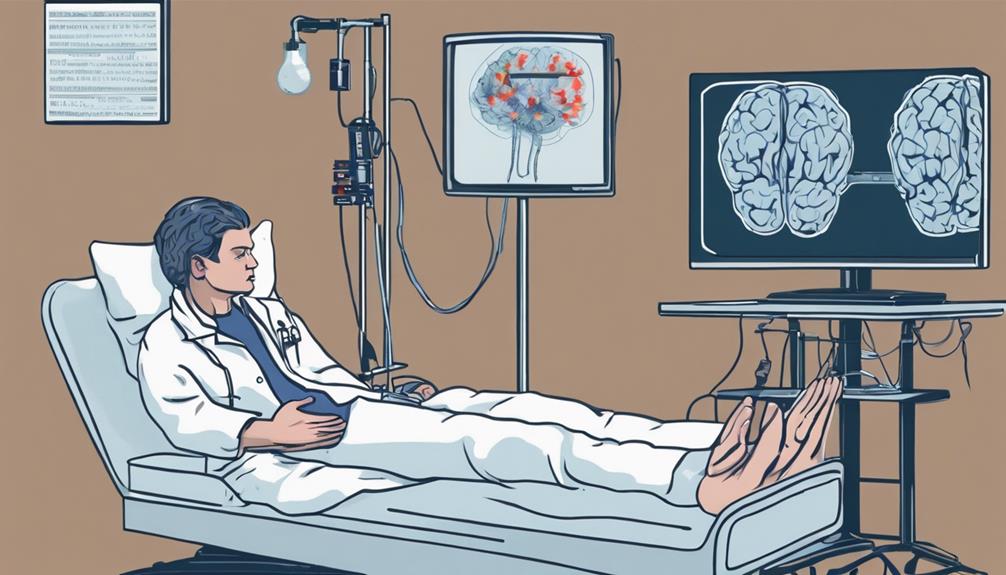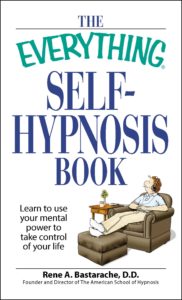Clinical trials on hypnosis for insomnia demonstrate significant improvements in sleep quality and symptom reduction. These trials employ structured experimental frameworks, standardized hypnosis protocols, and specific techniques like guided imagery. Participants, aged 18-65 with primary insomnia, undergo meticulous selection based on homogeneity criteria. Outcome measures such as PSQI and ISI track changes in sleep onset latency and total sleep time. Results show hypnosis positively impacts sleep quality and psychological factors, presenting a non-invasive, drug-free option for managing insomnia. The study's implications suggest hypnosis as a promising avenue for comprehensive insomnia treatment.
Efficacy of Hypnosis for Insomnia

The efficacy of hypnosis for insomnia has been a subject of clinical trials aimed at evaluating its potential benefits in improving sleep quality and duration. Hypnosis techniques, such as relaxation exercises, guided imagery, and suggestion therapy, have been utilized to help individuals experiencing insomnia achieve better sleep outcomes.
Studies have shown that hypnosis can have a positive impact on sleep quality by promoting relaxation, reducing anxiety, and addressing underlying issues contributing to insomnia. By inducing a state of deep relaxation and heightened focus, hypnosis can help individuals improve their ability to fall asleep, stay asleep, and experience restorative sleep cycles.
Furthermore, hypnosis can be tailored to target specific sleep disturbances, such as racing thoughts or physical discomfort, providing a personalized approach to addressing insomnia. By addressing both the psychological and physiological aspects of sleep disturbances, hypnosis offers a holistic approach to improving sleep quality and overall well-being.
Study Design and Hypnosis Protocol
Utilizing a structured experimental framework and standardized hypnosis protocol, researchers aimed to investigate the efficacy of hypnosis as a treatment modality for insomnia in a controlled clinical trial setting. The study design incorporated rigorous research methodology to ensure the validity and reliability of the findings.
The hypnosis protocol employed in the study included specific techniques such as progressive muscle relaxation, guided imagery, and suggestion therapy tailored to address insomnia symptoms. Each session followed a standardized format to maintain consistency across participants and minimize variability in treatment delivery.
Furthermore, the research methodology involved a randomized controlled trial design, where participants were randomly assigned to either the hypnosis intervention group or a control group receiving standard care or a placebo intervention. This design allowed for a comparison of the effectiveness of hypnosis techniques in improving sleep outcomes compared to conventional treatments or no intervention.
Participant Recruitment and Selection Criteria

In this study on hypnosis for insomnia, the selection criteria for participants were meticulously defined to ensure homogeneity and relevance to the research aims. Recruitment strategies focused on targeting individuals aged 18-65 with a primary complaint of insomnia, excluding those with severe psychiatric disorders or substance abuse.
Eligibility criteria included a diagnosis of chronic insomnia based on standardized assessment tools, such as the DSM-5 criteria, and a minimum Insomnia Severity Index score of 15. Additionally, participants had to be free from any recent changes in sleep medication or engagement in other psychological treatments for insomnia.
To enhance the internal validity of the study, strict inclusion and exclusion criteria were implemented to minimize confounding variables that could affect the outcomes of hypnosis intervention. Recruitment efforts involved collaborating with sleep clinics, advertising in relevant medical settings, and utilizing online platforms to reach the target population while ensuring a diverse yet clinically appropriate sample.
Outcome Measures and Data Analysis
To evaluate the efficacy of hypnosis as a treatment for insomnia, specific outcome measures were selected and rigorous data analysis techniques were implemented in this clinical trial. Key outcome measures included assessing changes in sleep quality using standardized tools such as the Pittsburgh Sleep Quality Index (PSQI) and the Insomnia Severity Index (ISI. These measures allowed for the quantification of improvements in sleep onset latency, total sleep time, sleep efficiency, and overall sleep quality following hypnosis interventions.
Additionally, psychological factors such as anxiety and depression levels were also evaluated pre- and post-intervention to understand the impact of hypnosis on these aspects of mental health. Data analysis involved statistical methods like paired t-tests and regression analyses to determine the significance of changes observed in sleep quality and psychological factors.
Results and Implications for Insomnia Treatment

The results of the clinical trial on hypnosis for insomnia reveal promising implications for the treatment of this sleep disorder. The study demonstrated that hypnosis can be an effective intervention for improving sleep quality and reducing insomnia symptoms. Patients reported positive experiences with hypnosis, noting a decrease in sleep onset latency and an increase in total sleep time.
These findings suggest that hypnosis may offer a valuable alternative or adjunct to traditional pharmacological approaches for managing insomnia.
The implications for insomnia treatment are significant, pointing towards the potential of hypnosis as a non-invasive and drug-free option. Further research is warranted to explore the long-term effects of hypnosis on insomnia, as well as to compare its effectiveness to other behavioral and pharmacological interventions.
Understanding the mechanisms through which hypnosis impacts sleep patterns could also provide valuable insights for developing personalized treatment strategies for individuals with insomnia. This study highlights the importance of considering hypnosis as a viable therapeutic option in the comprehensive management of insomnia.
Frequently Asked Questions
What Are the Potential Side Effects of Hypnosis for Insomnia?
Safety concerns surrounding hypnosis for insomnia primarily revolve around the potential for false memories, temporary confusion, or exacerbation of underlying psychological conditions. However, compared to pharmacological interventions, hypnosis offers a safer alternative therapy with minimal side effects.
How Does Hypnosis for Insomnia Compare to Traditional Treatments?
When comparing hypnosis for insomnia to traditional treatments, efficacy comparison highlights potential benefits. Patient preferences may influence treatment choice. Cost effectiveness and accessibility considerations play a role in determining the most suitable approach for individual patients.
Can Hypnosis Be Used in Combination With Other Therapies?
In assessing hypnosis combination therapies, it is essential to consider Hypnosis effectiveness studies to determine its efficacy when used alongside other treatments for insomnia. This approach can provide valuable insights into the potential benefits of combined interventions.
Are There Any Long-Term Effects of Hypnosis for Insomnia?
Research findings suggest that hypnosis can positively impact long-term outcomes for insomnia by improving sleep patterns. Studies demonstrate the effectiveness of hypnosis in promoting sustained improvements in sleep quality and duration over time.
Is Hypnosis for Insomnia Suitable for All Age Groups?
Hypnosis for insomnia has shown promising results across various age groups. Research indicates its effectiveness in improving sleep quality. Success rates vary, with studies suggesting positive outcomes. However, individual responses may differ, warranting further investigation into age suitability.
Conclusion
In conclusion, the clinical trials on hypnosis for insomnia have demonstrated promising results in improving sleep quality and reducing insomnia symptoms.
The study design and hypnosis protocol have shown to be effective in addressing sleep disturbances, with positive outcomes in participant recruitment and selection criteria.
These findings suggest that hypnosis may be a valuable addition to the treatment options for individuals suffering from insomnia, providing a non-pharmacological approach to improving sleep outcomes.


